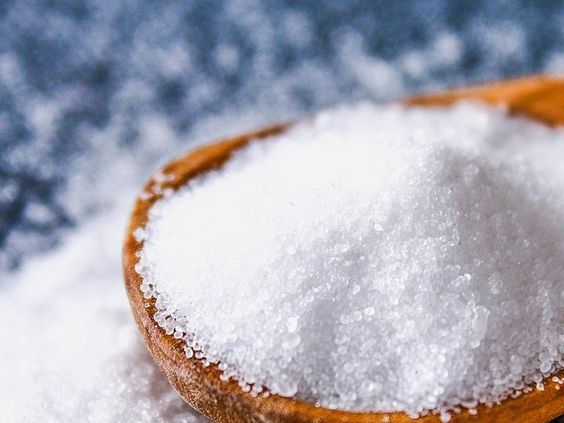FLOR G. TARRIELA l April 29, 2024 l Manila Bulletin

The Philippines has one of the longest coastlines at 36,289 kilometers, the 5th longest in the world. The country’s thriving salt industry, mostly from Occidental Mindoro, Pangasinan, Bulacan, and Cavite, in the 90’s was able to supply about 85 percent of local requirements.
An Act for Salt Iodization Nationwide, Republic Act 8172 became a law in 1995. Known as the ASIN LAW, it aimed to promote the production of iodized salt for the prevention of iodine deficiency disorders. It mandated all salt producers to iodize their products. Salt has many uses other than food such as in agriculture (coconut fertilizer), health and wellness (relieve sore throat-gargle with warm water, soak feet) etc. It was successful as the iodine deficiency was addressed. However, it “practically killed” the salt industry and made the Philippines imports 93 percent of the salt requirements, resulting in loss of livelihood and production.
The good news is that President Marcos Jr. recently signed into law, Republic Act 11985 or the “Philippines Salt Industry Development Act” to revitalize the salt industry. Finally, iodizing salt is now optional. Clara Lapus, founder of Mamasita that specializes in food mixes, condiments, and sauces, has been clamoring for this change for so many years.
The new Salt Law will provide a comprehensive roadmap to implement programs and interventions: in technology (all year-round production), research, and adequate financial, production (low cost), marketing, modernization and other support services. It is envisioned that new jobs particularly in the coastal communities will be generated. Salt, unprocessed and processed shall be exempt from all taxes.
The Department of Agriculture through the Bureau of the Fisheries Aquatic Resources (BFAR) as lead government agency will ensure that salt is a priority commodity to be produced locally. Government agencies will also have active roles. The Department of Environment and Natural Resources (DENR) will identify suitable public lands for salt farming, while the Department of Public Works and Highways (DPWH) will work on road linkages. The Department of Labor and Employment (DOLE) for conduct training along technical expertise by the Department of Science and Technology (DOST) while the Department of Trade and Industry (DTI) will work on trade and exports promotion. The goal is to be self-sufficient and ultimately be an exporter of salt to be properly labelled “Made in the Philippines”.
The topic of salt reminds me of my mother Arling. As a young housewife and an entrepreneur, she prayed for a business that she can do at home. As we were from Malabon and with the Navotas “punduhan” or wholesale fish market nearby, she started a patis business. She branded her patis “Dalisay” taking pride that it was unadulterated, purely a mixture of the basic raw materials: fish and salt. As a home-based business, my mom did practically everything. She bottled the patis with our house help and even drove the jeep in the 1950s (one of the first woman drivers) to deliver the patis to sari-sari stores and markets. Her business prospered with little overhead. Soon our backyard had truckloads of fish and salt to be mixed and placed in huge, cemented tanks to ferment as patis.
Nanay had a trusted agent to source the salt. The practice is that salt was paid by counting the empty sacks after delivery. On one salt delivery day, she noticed empty sacks inside the truck upon entering our gate. Oh my! This means that she was paying for empty sacks! She was so disappointed. What to do? Grrr! She stopped using that supplier and shared her heartaches with anyone with sympathetic ear. One suggested why not have your own salt beds?
To take her mind off her traumatic experience, my father then Director of Mines brought her (and me) to Baguio at the Annual Mining Conference. At Burnham Park, she met a friend who offered her salt beds in Pangasinan. As it was fully developed, she found the price steep. This crystallized the idea of producing her own salt. She bought raw land in PangASINan (means a place to cultivate salt) and supervised the construction of salt beds. Her experience was a “blessing in disguise” as today, many years later, we still enjoy the crystal-clear unpolluted fruits of those salt beds.
Local salt production (mainly from Occidental Mindoro and Pangasinan) is now estimated to supply about 16 percent of local requirements. The Philippine Salt Industry Development Act is an excellent step to restore our salt industry. Next is to watch the actual implementation by government agencies – DA, DENR, DTI, DOST, DPWH, DOLE, TESDA etc.- and with private sector to achieve self-sufficiency and even be an exporter.
*** Ms. Tarriela was former PNB Chairman and now serves as Board Advisor. A former Undersecretary of Finance, she is lead independent director of Nickel Asia Corp., director of LTG Inc. and FINEX. A gardener and an environmentalist, she founded Flor’s Garden in Antipolo, now an events destination. The views and opinions expressed above are those of the author and do not necessarily represent the views of FINEX. Photo from Pinterest.

